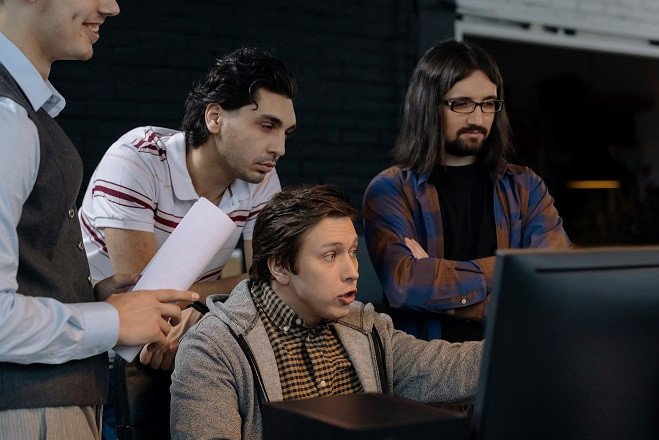Collaboration in Programming Skills: Building Better Software, Faster

In the ever-evolving world of programming, the importance of collaboration cannot be overstated. It serves as the linchpin that allows teams of developers to work together seamlessly, resulting in the creation of better software at a faster pace. When programmers collaborate effectively, they not only share ideas but also learn from each other's experiences, ultimately finding solutions to problems that may be insurmountable in isolation.
The Various Facets of Collaboration in Programming
Collaboration in programming takes many forms, each serving a unique purpose:
1. Pair Programming
Pair programming involves two programmers working in tandem on the same piece of code. While one programmer is responsible for typing out the code, the other acts as a reviewer. This dynamic duo approach is akin to having a real-time code auditor, helping to catch errors early in the development process. Moreover, it ensures that the code adheres to a consistent style and structure.
2. Mob Programming
Mob programming takes the concept of pair programming to the next level. In this scenario, a group of programmers collaborates on a single piece of code simultaneously. The entire team contributes to the codebase at once. This collaborative effort fosters an environment of shared knowledge and rapid problem-solving. It is particularly effective for learning new skills and receiving real-time feedback from peers.
3. Code Reviews
Code reviews are a cornerstone of collaborative programming. In this process, one programmer meticulously reviews the code authored by another. The primary goal is to ensure that the code is not only technically sound but also aligns with the project's coding standards and best practices. Code reviews act as a quality assurance mechanism, promoting high-quality code within the team.
4. Version Control Systems
Version control systems are the backbone of collaborative programming. These systems track changes to code, creating a historical record of modifications. This functionality is indispensable when multiple team members are working on the same codebase. It ensures that changes can be easily reverted if needed, preventing conflicts and data loss.
Effective Collaboration: Beyond Methods
While the aforementioned collaborative methods are essential, effective collaboration in programming extends beyond them. Here are some additional tips to enhance collaborative efforts:
1. Regular Communication
Clear and regular communication is vital. Discuss project goals, requirements, and progress with your team. Also, be open about any challenges or roadblocks you encounter. A culture of open communication fosters a collaborative spirit.
2. Mutual Respect
Respect for your colleagues' opinions and contributions is non-negotiable. Additionally, being open to feedback and a willingness to learn from others can elevate the collaborative process and lead to better outcomes.
3. Choosing the Right Tools
Selecting the appropriate tools for collaboration is critical. Different projects and teams may benefit from various collaboration and version control tools. Choose tools that align with your project's needs and the preferences of your team.
4. Organized Code
Well-organized code is easier for others to work with. Keeping your codebase tidy and structured not only enhances collaboration but also improves maintainability and reduces the likelihood of errors.
5. Documentation
Documenting your code is a sign of a responsible programmer. It not only helps your colleagues understand what your code does but also serves as a reference for yourself in the future. Comprehensive documentation is an asset to any collaborative project.
6. Thorough Testing
Before sharing your code with others, perform thorough testing to ensure it is free of errors. This step minimizes disruptions in the collaborative workflow and maintains the integrity of the project.
7. Patience
Collaboration can sometimes be time-consuming. It's important to remain patient with your collaborators and with yourself. Remember that the extra time invested in collaboration often leads to a more robust final product.
Conclusion
Collaboration is not just a valuable skill; it's a necessity for programmers. By embracing various collaborative methods, communicating effectively, and fostering a culture of respect and open learning, programmers can harness the power of collaboration to create better software, faster. Whether you're working on a small project or contributing to a massive team effort, effective collaboration is the key to success in the dynamic world of programming. So, embark on your collaborative journey, and together, let's build a brighter coding future.




